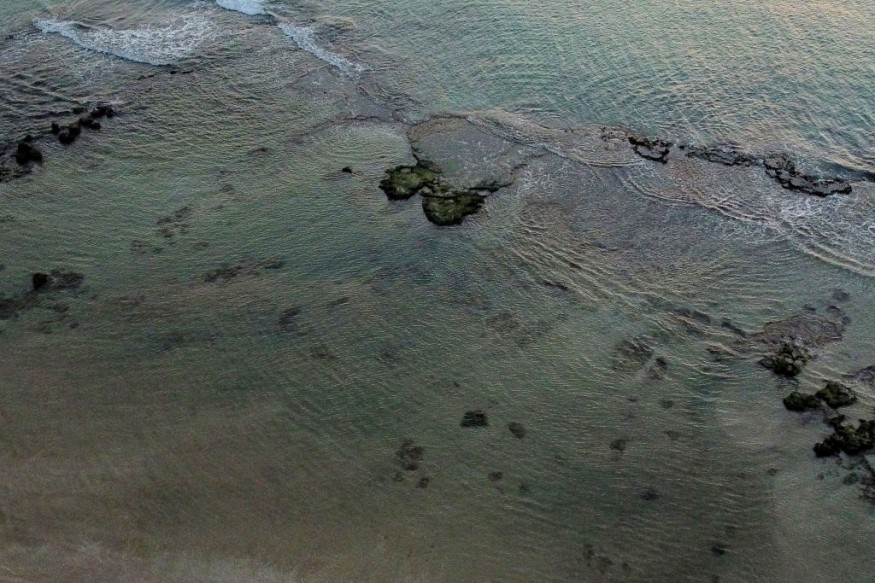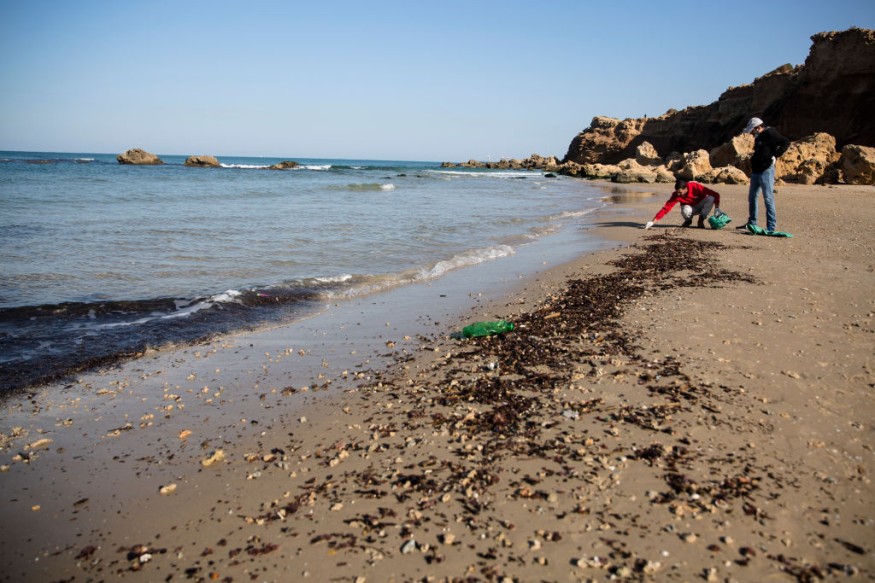Following a "professional and thorough investigation," the Environment Ministry cleared the Minerva Helen of responsibility for the country's worst oil spill.

Minerva Helen Cleared
Israel cleared the Greek tanker Minerva Helen of any responsibility in the devastating spill off its Mediterranean coast after an investigation at the port of Piraeus.
The Minerva Helen was drifting and waiting for orders in the Eastern Mediterranean.
The ship's owners have denied liability for both leaks, arguing that "over the time that the vessel was floating offshore of Port Said awaiting her next employment, [it] was not engaged in any service or in any other incident that could be attributed to an oil discharge at sea."
The oil spill has destroyed 170 kilometers of Israel's coastline, rendering it one of the country's worst environmental disasters. Concerns that a second oil slick is threatening Israel's coasts have sparked cleanup efforts.
Related Article: Sea Turtles Coated in Toxic Oil Spill Get Healed by Mayonnaise
Israeli Oil Spill
February 4 to 11, roughly the same time as the spill. Minerva Marine, the vessel's operator, denied any involvement in the spill, pointing out that the vessel was in ballast at the time of the pollution incident, with no cargo on board. According to Minerva, she was not involved in any STS transfers or other activities that could have resulted in a discharge. A PSC inspection on the 22nd in Cartagena found nothing wrong.
On Saturday, Israeli and Greek inspectors met the ship in Piraeus. The Israeli Ministry of Environmental Protection cleared the tanker of any wrongdoing following their investigation.
The ship was finally eliminated as the source of pollution after a thorough, professional, and comprehensive inspection by an inspector from the Environmental Protection Ministry and an inspector from the Shipping and Ports Administration, the ministry said in a statement.
The IMO and Israeli authorities originally named about ten vessels as potential suspects in the leak. Still, the ministry announced on Saturday that it is extending its probe to include several more.
Continuing Investigation

In a statement, Environment Minister Gila Gamliel said, "We are continuing our investigation and are committed to doing everything possible to find the ship that is responsible for polluting Israel's coasts, for the public, nature, and animals." "We'll get where we need to go and use all available tools to get there... We also have a right to know who has abused animals and Israel's coasts, and we must keep [them] responsible."
In a statement on Saturday, Gamliel said that the Israeli Air Force had recently detected a possible second slick, which had been analyzed and determined to be benign.
According to a recently published study by researchers at Hebrew University, the tar-like spill is most likely crude oil, not HFO. According to the results, the origins vessel is an oil tanker, and the proximate cause is either an STS transfer collision or a spill.
Precautions
In response to the significant petroleum leak that has impacted Israel's western coastline over the past week, Israel has banned the selling of all domestic Mediterranean-sourced seafood. The embargo, which automatically goes into effect, includes the sale and selling of all Mediterranean fish captured off Israel's coast.
"While there has been no proof of any danger associated with fish consumption so far, some samples have been sent to the Agriculture Ministry's lab for examination to rule out the existence of harmful particles," the health ministry told The Media Line.
ALSO READ: Florida Fails to Respond to Epizootic Coral Disease: What Happened?
For more news about the environment, don't forget to follow Nature World News!
© 2026 NatureWorldNews.com All rights reserved. Do not reproduce without permission.





